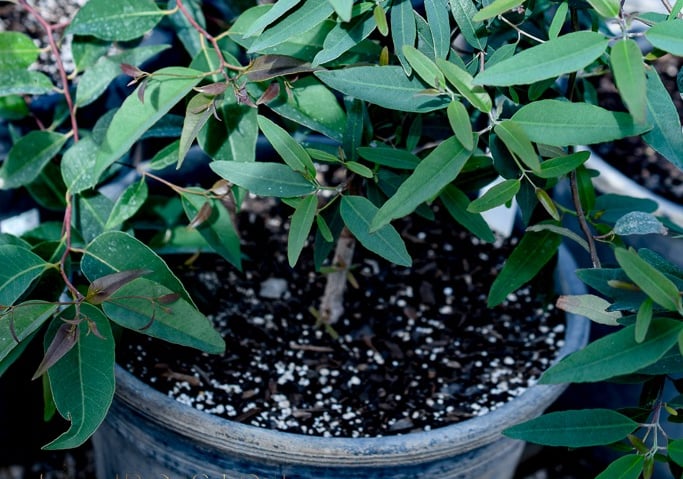Container Gardening


Gardening in vertisol soil can be a battle, but there's a solution that offers flexibility and ease: container gardening. Maintaining potted plants can be a rewarding experience that allows you to grow beautiful plants without the struggle of soil conditions. Let's explore the benefits of container gardening and provide some practical tips for keeping your potted plants thriving all year round.
The Benefits of Container Gardening
Mobility: One of the greatest advantages of container gardening is the ability to move your plants. As the summer heats up or winter chills set in, you can relocate your pots to more favourable conditions. Take advantage of natural rain by moving your plants outdoors and bringing them inside during harsh weather.
Soil Control: Container gardening allows you to bypass the challenges of vertisol soil by using high-quality potting mixes. This control over soil quality can significantly improve plant health and growth.
Accessibility: Gardening in containers makes it easier for people of all ages and abilities to enjoy gardening. Raised containers can reduce the need for bending and make gardening more accessible for everyone.
Pest and Disease Management: Containers can help isolate plants from ground pests and diseases, making it easier to manage and treat any issues that arise.
A strong foundation is crucial for healthy plants. Using a high-quality potting mix ensures your plants get the nutrients they need. You can buy pre-made potting mix or create your own. Here’s a simple recipe for a homemade mix:
Base: 40% peat moss or coconut coir (for moisture retention; make sure you select a well-washed coco coir that is not overly salty)
Aeration: 30% perlite or vermiculite (to improve drainage)
Nutrients: 20% compost or well-rotted manure (for organic matter)
Minerals: 10% garden soil or coarse sand (for structure)
This mix provides a balance of moisture retention, aeration, and nutrients that plants need to thrive.
Fertilising Your Plants
Most commercial potting mixes come with a starter dose of fertiliser, but it's important to know how long this will last—typically around 6 to 8 weeks. After this period, you'll need to supplement with a balanced liquid fertiliser or slow-release pellets. If you’re using a homemade mix, you may need to start fertilising sooner. Always follow the instructions on your fertiliser for the best results.
Watering
Watering can make or break your container garden. High-pressure hosing can damage delicate roots and compact the soil. Instead, use these techniques:
Gentle hosing from above, soaker Hoses or drip irrigation: These methods provide a steady, gentle flow of water.
Watering Cans: Allows you to control the flow and avoid splashing foliage.
Bottom Watering: Place pots in a shallow tray of water and let the soil absorb moisture from the bottom up.
Knowing When to Repot
Potting mixes break down and lose their effectiveness over time. Signs that it’s time to repot include:
Roots growing out of drainage holes
Slow growth or yellowing leaves
Soil that dries out too quickly or stays soggy
Repotting helps refresh the soil and provides more space for root growth. When moving to a larger container, choose one that’s just a couple of inches larger in diameter to avoid excessive moisture retention.
Repotting and Root Care
When repotting, gently loosen the roots and trim any that are dead or overly long. This is somewhat similar to bonsai care, where root pruning helps maintain a healthy root system. Add fresh potting mix around the root ball and water thoroughly.
Maintaining Happy, Healthy Potted Plants
Regular maintenance, including proper watering, fertilising, and repotting, keeps your potted plants healthy and happy. The benefits of container gardening are numerous, making it an accessible and enjoyable activity for all. Embrace the flexibility and control that container gardening offers, and enjoy a flourishing garden regardless of the challenges posed by Queensland's vertisol soil.
Happy gardening! 🌿
